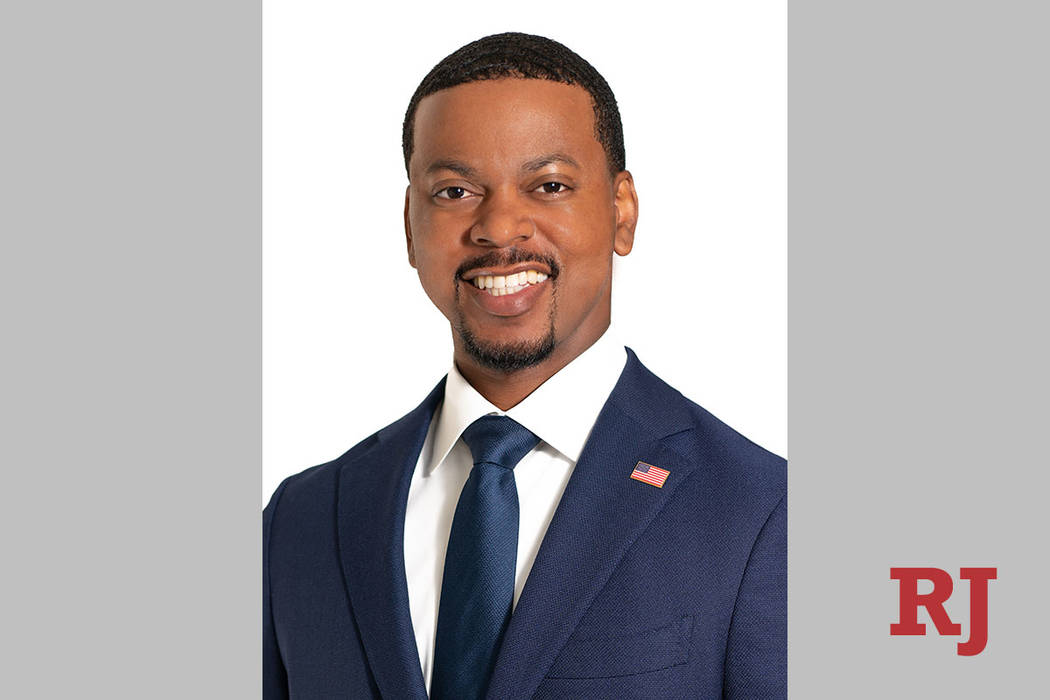Nevada’s Democratic telephone caucus may be scrubbed
The Democratic National Committee is moving to reject Nevada’s plan for a virtual telephone caucus because of hacking concerns, according to a statement by Nevada Democratic Party Chairman William McCurdy II.
“Unfortunately, The DNC has advised we not go forward with this process due to threats against our Democratic infrastructure and Republican inaction to prevent future attacks in the upcoming election cycle,” the statement reads.
The Nevada Republican Party responded to McCurdy’s statement with one of its own.
“Republicans are not to blame for Chairman McCurdy’s lazy idea to nominate a presidential candidate over a conference call,” spokesman Keith Schipper said. “McCurdy should spend more time figuring out how to put on his caucus in a few months, and less time pointing fingers.”
The Associated Press first reported the move Thursday. According to that report, the DNC’s Rules and Bylaws Committee must still cast a final vote on whether to kill the virtual caucus. But statements made Friday by the committee’s leaders and DNC Chairman Tom Perez strongly suggest the virtual caucus would not happen.
Security officials hired by the DNC recently tested and expressed concerns over virtual caucus plans for Nevada and Iowa.
McCurdy expressed some disappointment over the DNC’s decision, saying the state party released its plan in March to comply with the national’s party’s June 2018 rule requiring the states to expand absentee caucus options. Nevada Democrats now have less than six months to adjust the caucus plan.
He said the state party will still meet that requirement with its introduction of early voting, which will allow voters to participate in person up to four days before the official Feb. 22 caucus date.
History of controversy
Nevada Democrats were hoping for a smooth, inclusive caucus after a divisive 2016 state convention in which supporters of Vermont Sen. Bernie Sanders — who is also among the frontrunners for the 2020 nomination — loudly objected over what they believed to be a process rigged for former Secretary of State Hillary Clinton.
A state Democratic official who requested anonymity because discussions with the DNC are ongoing said the likely cancellation of the virtual caucus option wasn’t due to any failings on behalf of the state party or its vendors.
“There’s not a technology that exists with enough security to quell the fears of the DNC members,” the official said. “It’s not that we couldn’t handle it or didn’t do enough. Nothing exists that can defend against (the hacking).”
Perez echoed this explanation in a statement released Friday.
“We concur with the advice of the DNC’s security experts that there is no tele-caucus system available that meets our standard of security and liability,” Perez said.
Staff members for Nevada’s Democratic congressional delegation did not respond to requests for comment on the DNC’s announcement.
Decision angers some
The campaigns for the various 2020 presidential hopefuls reacted to the news in varied ways.
Massachusetts Sen. Elizabeth Warren’s campaign declined to comment, but former Housing and Urban Development Secretary Julian Castro released a fiery statement criticizing the DNC.
“For years, our party has fought for increased access to the ballot, most recently evidenced by the legal struggles in Georgia, North Carolina, and my home state of Texas,” Castro said. “This decision goes against everything our party says we stand for.”
Dan Hart, a Las-Vegas based political consultant and lobbyist, said he understood the need for security, but he believes the DNC’s decision will hurt turnout in Nevada’s caucuses.
“Most voters are unfamiliar with the caucus procedure, so I imagine this will dampen turnout,” he said. “Any time you have to be in a particular place at a particular time, we just don’t experience that in our political process except in the caucuses.”
Hart said there’s clear excitement for the idea of phone caucuses.
“It’s the wave of the future,” he said. “It’ll be implemented in the future, but it may be that the time isn’t right just now.”
Contact Rory Appleton at rappleton@reviewjournal.com or 702-383-0276. Follow @RoryDoesPhonics on Twitter.

















